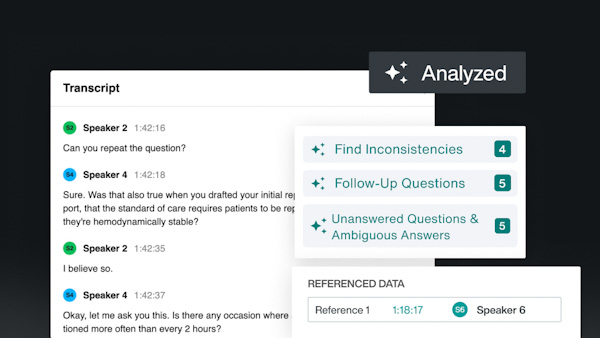By Victor Li

Image from Filevine’s Sept. 12 product press release.
The generative artificial intelligence tool is not just designed to transcribe depositions. It looks for inconsistencies. It suggests questions to ask. It analyzes the transcript in real time to see whether there are issues that have to be cleared up or areas of weakness to address.
In other words, it’s like having another attorney in the room—only one who’s capable of digesting large amounts of data and analyzing it quickly.
In this episode of the Legal Rebels Podcast, Alex McLaughlin, the vice president of product at Filevine, talks to the ABA Journal’s Victor Li about about Depo CoPilot, as well as issues relating to generative AI and what it means for the future of depositions. Filevine is a software company specializing in cloud-based case management for the legal industry.


Alex McLaughlin
Alex McLaughlin is the vice president of product at Filevine—a software company specializing in cloud-based case management for the legal industry—innovating on designing Filevine’s artificial intelligence products, as well as traditional case management features that make law firms more efficient and profitable. McLaughlin comes from a technical background working as an IT director for a plaintiff and mass tort practice and previously has worked on some of the largest cases in the country.